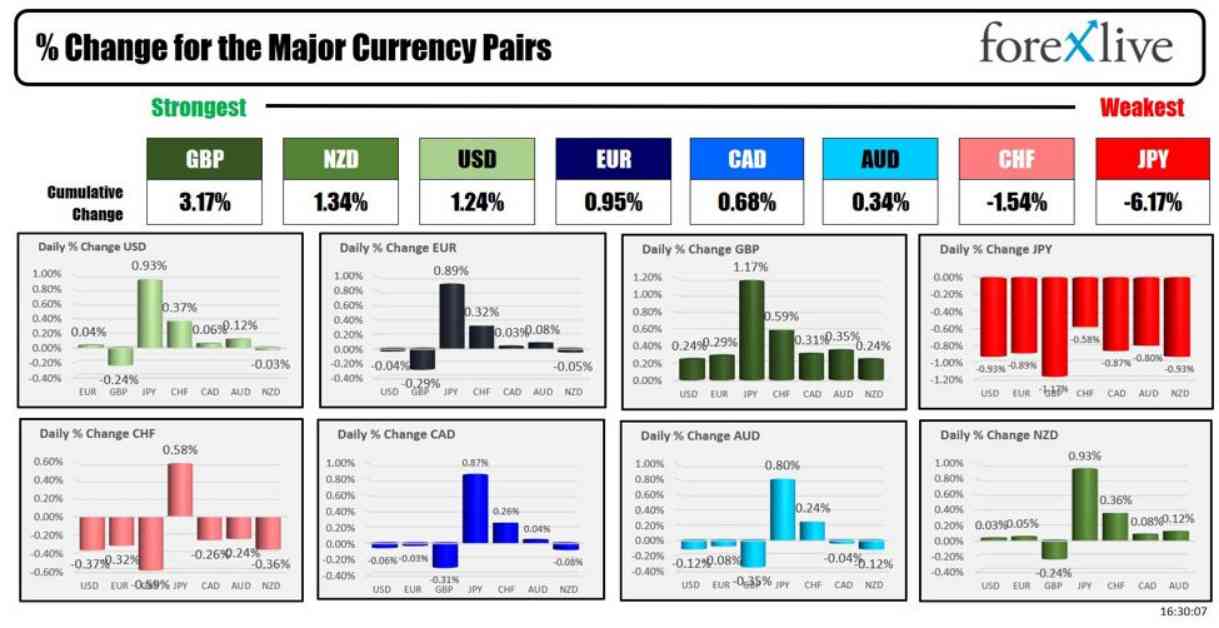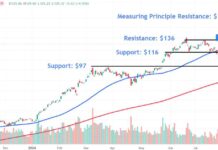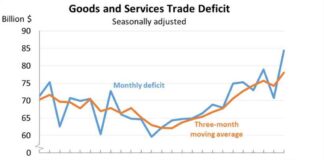Forexlive Americas FX News Wrap September 20: USD Ends the Week Mostly Up
The end of the week saw a mixed performance for the major indices as investors digested a range of news and data. One notable development was Qualcomm approaching Intel about a potential takeover, signaling possible consolidation in the tech sector. Meanwhile, the Federal Reserve continued to be in focus, with various members sharing their views on the economy and monetary policy.
Fed Harker expressed concerns about the risk of inflation decline stalling, highlighting the delicate balance the central bank faces in managing price stability. Crude oil prices settled higher, reflecting ongoing geopolitical tensions and supply concerns. Additionally, the Fed’s Bowman explained her dissent in the recent rate cut decision, advocating for a more measured approach to policy adjustments.
In the forex market, the GBP emerged as the strongest currency, while the JPY showed weakness. The USD ended the week with gains against several major currencies, reflecting a mix of economic data and central bank actions. Looking ahead, market participants will be closely watching for further commentary from Fed officials and monitoring global economic indicators for signals on future monetary policy decisions.
Key Developments in the Market
The week saw a flurry of activity in the financial markets, with various central bank statements and economic data releases shaping investor sentiment. In the US, the Federal Reserve’s decision to cut rates by 50 basis points garnered attention, with Fed Governor Waller highlighting the need for a flexible approach to policy adjustments. The central bank’s focus on inflation and employment dynamics underscored the challenges of steering the economy in a changing global landscape.
Meanwhile, in Canada, retail sales exceeded expectations, providing a positive signal for the economy. However, industrial product prices fell short of forecasts, pointing to potential headwinds in the manufacturing sector. The Bank of Canada’s Macklem raised concerns about the impact of AI on inflation, suggesting a shift in technological trends could influence price dynamics in the short term.
Market Outlook and Currency Trends
As the week drew to a close, the GBP stood out as the strongest currency, buoyed by the Bank of England’s decision to hold rates steady and upbeat retail sales data. In contrast, the JPY lagged behind, reflecting a dovish policy stance from the Bank of Japan. The USD maintained its gains against the JPY, CHF, and AUD, while holding steady against the EUR, CAD, and NZD.
Looking ahead, market participants will be monitoring central bank actions and economic indicators for clues on future currency movements. The outlook for the USD remains mixed, with analysts at Morgan Stanley expecting a series of Fed rate cuts through mid-2025. The Eurozone’s consumer confidence data showed a slight improvement, but concerns linger about the region’s economic growth prospects.
Global Market Performance
In the US, stock indices closed mixed, with the Dow posting modest gains, while the S&P and NASDAQ dipped slightly. The Russell 2000 index fell sharply, reflecting broader market volatility. For the week, major indices posted gains, signaling a degree of resilience in the face of economic headwinds.
In Europe, equity markets closed lower, with German, French, and UK indices all registering losses. Spain and Italy saw more modest declines, highlighting regional variations in market performance. The global macroeconomic environment remains uncertain, with geopolitical tensions and trade disputes adding to investor jitters.
Overall, the week’s developments underscore the complex interplay of factors shaping global markets. Central bank policies, economic data releases, and geopolitical events all contribute to market volatility and uncertainty. As investors navigate these dynamics, staying informed and agile is essential to managing risk and seizing opportunities in the ever-evolving financial landscape.

















